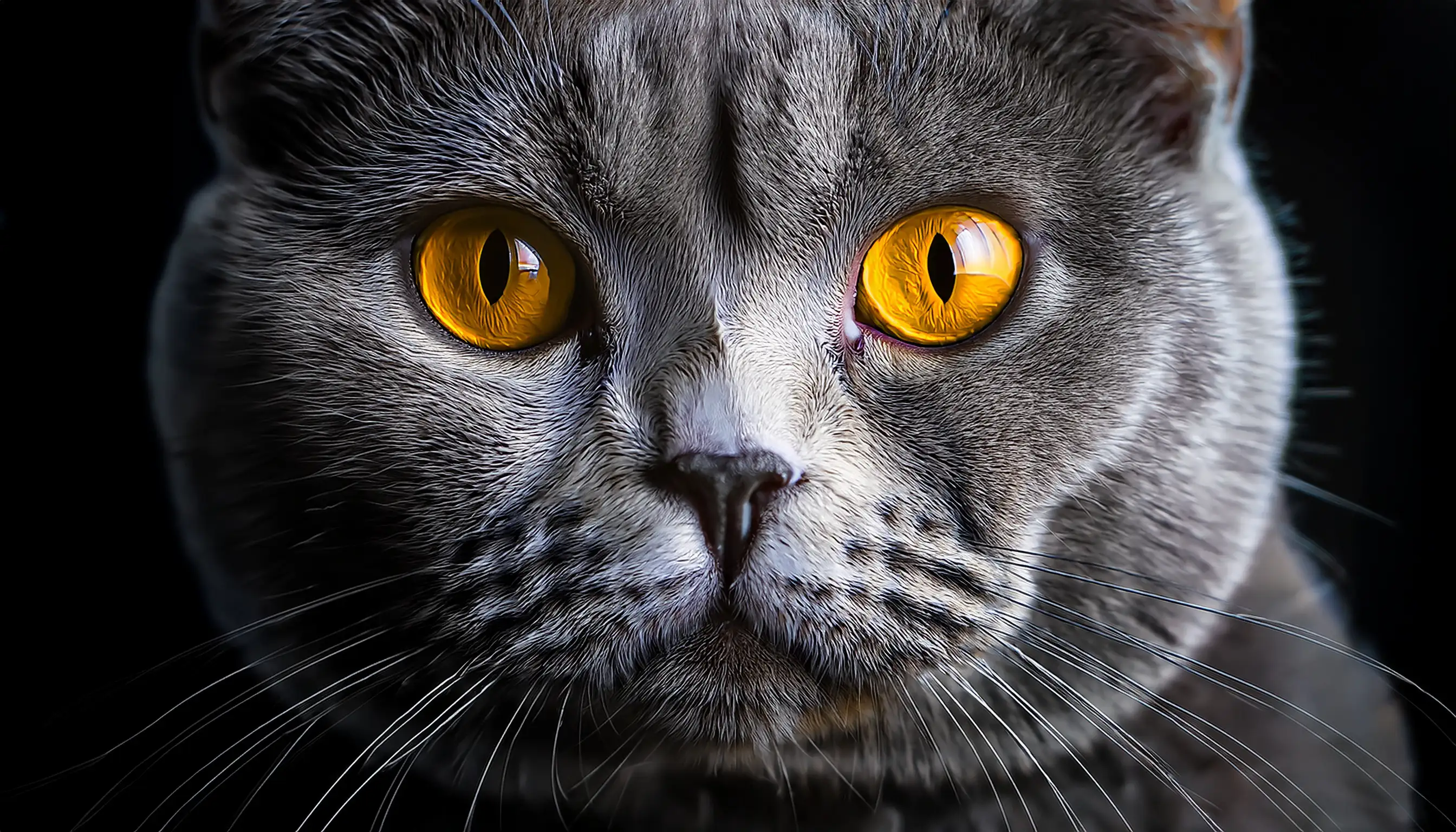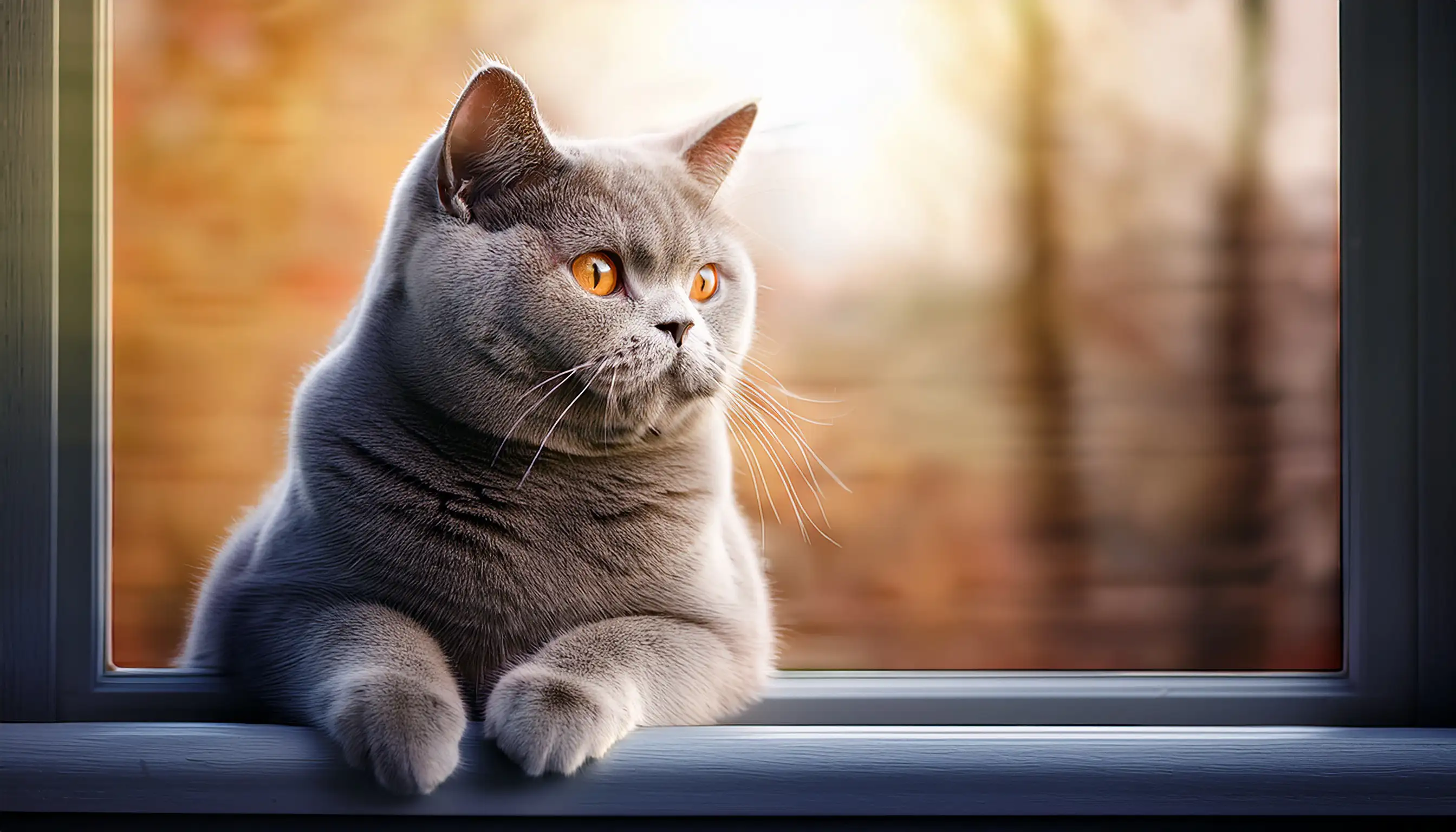Feline Infectious Peritonitis – FIP in British Shorthair Cats
April 12, 2024
Feline Infectious Peritonitis (FIP) is caused by a coronavirus and can affect British Shorthair cats.

🐾 Feline Infectious Peritonitis (FIP) in British Shorthair Cats
Feline Infectious Peritonitis (FIP) is a serious viral disease caused by a feline coronavirus.
Although unstable in the environment, the virus can survive for up to seven weeks on dry surfaces or organic material.
Like other breeds, the British Shorthair can also be affected, especially under stress or compromised immunity.
⚡ Forms of the Disease
There are two main clinical forms of FIP:
-
Effusive (Wet) Form:
Fluid accumulation in the abdomen and/or chest, leading to abdominal swelling or breathing difficulty. -
Non-Effusive (Dry) Form:
Affects internal organs such as the brain, eyes, kidneys, and liver, causing neurological and ocular symptoms.

Ocular jaundice can be an important clinical sign in dry FIP.
🧬 Risk Factors
Key risk factors include:
- Cats aged 6 months to 2 years or senior cats
- Predisposed breeds (Persian, Bengal, Birman, among others)
- High population density environments
- Malnutrition or concurrent diseases such as FeLV and FIV
- Use of immunosuppressive medications
🦠 How is it Transmitted?
The main route of transmission is oral-fecal, primarily through:
- Shared litter boxes
- Contaminated food or water bowls
- Infected surfaces and objects

Maintaining a clean litter box is crucial for preventing infections.
🩺 Main Clinical Signs
Be alert to the following symptoms:
- Persistent fever unresponsive to antibiotics
- Weight loss and decreased appetite
- Diarrhea and dehydration
- Jaundice (yellowing of mucous membranes and eyes)
- Ocular and neurological changes
🧘 Prevention and Care
To help protect your British Shorthair:
- Keep the living environment clean and safe
- Minimize stressful situations
- Keep vaccinations up to date
- Avoid overcrowding
- Schedule regular veterinary check-ups

Constant monitoring and a healthy environment are vital for prevention.
🎯 Conclusion
Feline Infectious Peritonitis (FIP) remains a major challenge, but knowledge, prevention, and early diagnosis can make a significant difference.
Protecting your cat’s environment and watching for early symptoms are key steps toward safeguarding their health and well-being.

Awareness saves lives: Protect your British Shorthair with knowledge and love.
🐾 This content was produced by British Village
We are proud to specialize in the ethical and responsible breeding of British Shorthair cats, always prioritizing health, temperament, and well-being.
Learn more about our work here.
